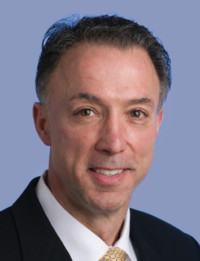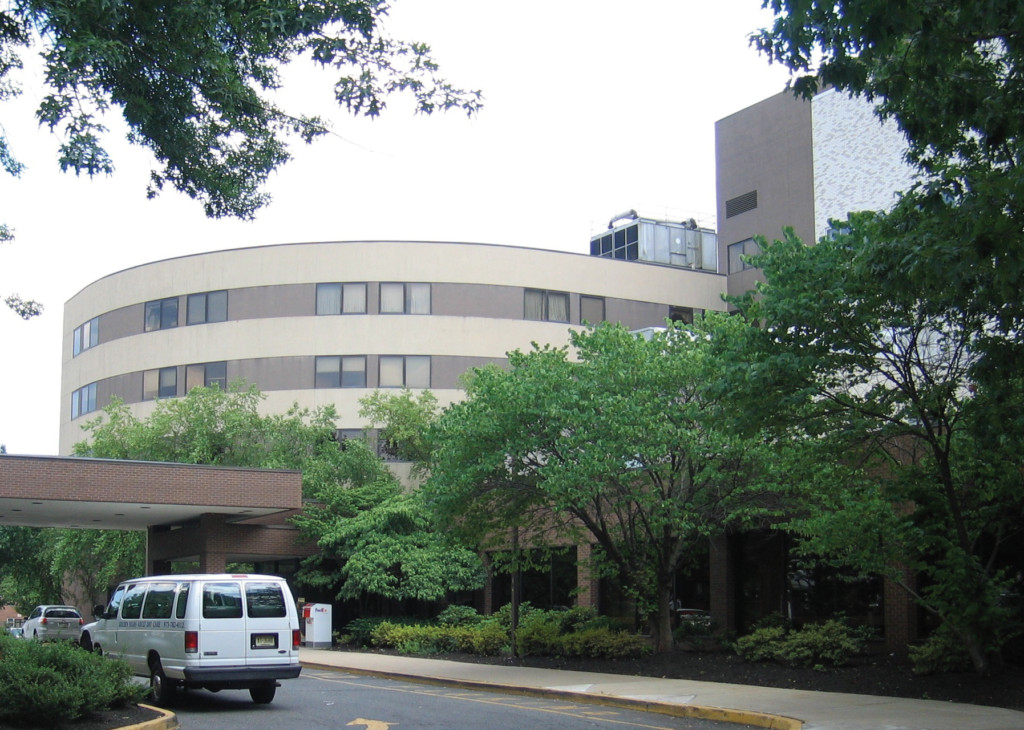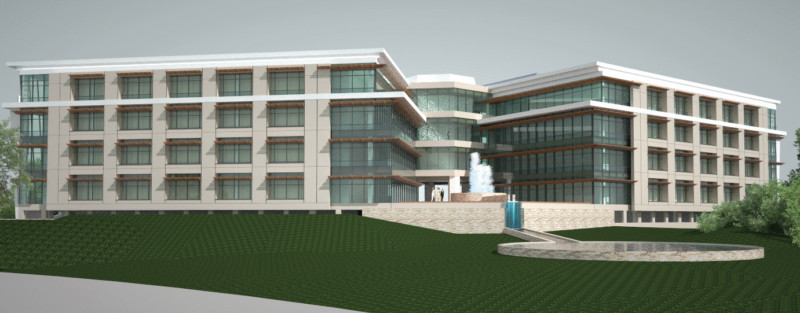In the evolving landscape of healthcare and real estate, Cha Partners stands out as a visionary firm specializing in the adaptive reuse of former healthcare facilities. Led by Bill Colgan, a seasoned expert with over 25 years in the healthcare sector, CHA Partners has carved a unique niche by transforming underutilized hospitals into thriving medical arts complexes and mixed-use developments. Their journey, marked by strategic acquisitions and innovative redevelopment, addresses a critical need in communities facing hospital closures.
The genesis of CHA Partners emerged from a clear market observation: the consolidation of acute care hospitals in New Jersey. Where once the state boasted 115 such institutions, the number has dwindled to under 70. This trend, evident as early as 2008, revealed a significant gap – a lack of strategic planning for repurposing these vacated facilities.
“We were realizing that there was really no plan to repurpose these facilities,” explains Bill Colgan, a founding member and managing partner of CHA Partners. “And what became apparent is that the inpatient environment was going to continue to consolidate.”
This insight became the cornerstone of CHA Partners’ mission. Recognizing the changing dynamics of the healthcare market, they identified an opportunity to address the growing need for outpatient services and community-focused healthcare spaces. While many saw hospital closures as a loss, CHA Partners envisioned potential – the chance to revitalize these sites and restore essential medical services in a modern, accessible format.
 Bill Colgan of CHA Partners discussing healthcare real estate trends and adaptive reuse strategies.
Bill Colgan of CHA Partners discussing healthcare real estate trends and adaptive reuse strategies.
CHA Partners: Addressing New Jersey’s Healthcare Transition Through Strategic Redevelopment
For over a decade, CHA Partners has been at the forefront of this transformation, acquiring and successfully repurposing three former hospitals across New Jersey. Now, they are embarking on their most ambitious project yet: the revitalization of the shuttered Muhlenberg Regional Medical Center in Plainfield.
This $57 million initiative, already approved by Plainfield city officials, outlines the development of a 186,000-square-foot medical arts complex alongside 120 apartment units at the former hospital site. As CHA Partners awaits final state approval for the property acquisition, anticipation is building for a project that promises to breathe new life into a vital community space. Construction is optimistically slated to commence by midyear, marking a significant milestone for Plainfield and CHA Partners alike.
The closure of Muhlenberg Hospital in 2008 left a palpable void in Plainfield. Mayor Adrian O. Mapp aptly captures the community’s sentiment and the project’s significance:
“Muhlenberg Hospital was an integral part of the Plainfield community for decades,” Mayor Mapp stated in January. “The project that emerged and is now set to begin will not only bring much needed medical services back to our community, it also will provide an important boost to the local economy.”
For CHA Partners, the Plainfield project is a testament to their established track record. Their portfolio includes the successful repurposing of the former Barnert Hospital in Paterson, Greenville Hospital in Jersey City, and William B. Kessler Memorial Hospital in Hammonton. Furthermore, demonstrating their adaptability and reach, CHA Partners ventured into New York City post-Hurricane Sandy, developing a new medical arts complex in the Rockaway area of Queens, a region heavily impacted by the storm.
These projects undertaken by CHA Partners are not merely real estate ventures; they are vital interventions that preserve and reinstate essential healthcare services. In an era where rising healthcare costs and shifts towards outpatient procedures have led to hospital closures and bankruptcies, CHA Partners’ work is crucial. They are addressing the disconnect between rising healthcare expenditure and the accessibility of services within communities.
“I think one of the drivers is (that) the Department of Health doesn’t have the type of funding it needs in order to make a meaningful impact in the transition from inpatient care to outpatient care,” Colgan observes. “So as we watched the disorderly closure of hospitals … how do you capitalize on (the fact that) there’s still a need for health care in the community? And that really was the driving force as to why we focused our efforts on that niche.”
CHA Partners: Rooted in Healthcare Expertise and Visionary Development
The vision driving CHA Partners is deeply rooted in decades of experience within the healthcare industry. The firm’s principals are not just developers; they are former hospital executives and consultants who possess an intimate understanding of the healthcare ecosystem. Bill Colgan and his partner, Michael Nudo, bring nearly 20 years of experience running Armanti Financial Services LLC, the tristate region’s largest healthcare revenue cycle management firm. This business, with over 600 employees and a national client base encompassing a significant portion of New Jersey hospitals, provided them with invaluable insights into the financial pressures and evolving needs of the healthcare sector. Their experience as unsecured creditors in hospital bankruptcy proceedings further solidified their understanding of the industry’s challenges and opportunities. The sale of Armanti Financial Services in 2006 paved the way for the establishment of CHA Partners, initially known as Community Healthcare Associates LLC.
A key learning for CHA Partners has been the critical impact of timing in hospital repurposing projects. The firm recognizes the advantage of early intervention following a hospital closure.
“Our preference is always to get in there sooner rather than later, because what happens is that health care services find their way around the community,” Colgan explains. “So there are voids that are created and we like, opportunistically, to be able to take advantage when the void gets created, because then we can recruit health care providers back into facilities and we can concentrate them under one roof.”
This proactive approach was evident in CHA Partners’ first acquisition, the former Barnert Hospital in Paterson. This 300,000-square-foot facility, previously a municipal hospital, presented both an opportunity and a challenge. Despite navigating a protracted tax appeal dispute with the city, CHA Partners successfully executed a $25 million renovation. Today, the revitalized complex stands at 97 percent occupancy, housing a diverse range of medical services, from ambulatory surgical and urgent care centers to dialysis treatment and oncology practices.
 The repurposed Barnert Hospital in Paterson, a successful medical arts complex developed by CHA Partners.
The repurposed Barnert Hospital in Paterson, a successful medical arts complex developed by CHA Partners.
The Plainfield Project: A Testament to CHA Partners’ Perseverance
The Plainfield project, while gaining final local approvals more recently, has been on CHA Partners’ radar since their early days. In 2008, while initiating the Barnert conversion, CHA Partners’ principals engaged with Assemblyman Jerry Green regarding the impending closure of Muhlenberg Hospital in his city. However, initial assessments revealed that the project was not financially viable without external incentives.
“He said, ‘What would it take for you to do at Muhlenberg like you’re doing up at Barnert?’ ” Colgan recounts. “And the short answer was, ‘We can’t make the economics work without some sort of incentive program — and no incentive program exists.’ ”
CHA Partners collaborated with Assemblyman Green to advocate for a tax credit incentive program, which, unfortunately, was vetoed. Despite this setback, CHA Partners remained committed to the project, increasing their involvement in 2014, initially acting as a facilitator between city officials and Muhlenberg’s parent organization, then Solaris Health System, to advance redevelopment discussions.
When Plainfield issued a request for proposals in early 2015, CHA Partners responded with a comprehensive plan to address the healthcare gap left by the hospital closure. The city then initiated a study and formulated a redevelopment plan under state law, paving the way for a financial agreement with CHA Partners. The redeveloped site is projected to generate approximately $10 million in benefits for Plainfield through Community Benefit Payments and a payment in lieu of taxes agreement, demonstrating the significant economic and community impact of CHA Partners’ projects.
CHA Partners’ proposal for the Muhlenberg site evolved over time, adapting to changing market conditions and community needs. The shift from supportive housing to market-rate apartments and a recalibration of the medical component size are examples of this adaptive approach. Colgan emphasizes that the final plan is the result of collaborative efforts from numerous stakeholders.
“There was a lot of work on multiple parties’ behalf to ultimately get there,” Colgan notes. “The mayor had a really tough battle. The community was not fully supportive, because in their view they should have reopened the hospital. So I give the mayor a lot of credit: He fought an unpopular fight and he realized what the right thing was for the community.”
Currently, CHA Partners is navigating the final regulatory step for the Plainfield project – clearance under the Community Health Care Assets Protection Act (CHAPA). This review ensures transparency and fair value in the transaction, given the non-profit status of the selling health system. The State Attorney General’s Office will also oversee the allocation of proceeds, reinforcing the principle that assets of non-profit healthcare entities are considered community assets.
This CHAPA process highlights the intricate regulatory landscape of hospital redevelopment, adding considerable time and complexity to projects. Colgan estimates that incorporating healthcare elements into redevelopment in New Jersey can extend timelines by at least a year. CHA Partners’ established relationships with state healthcare regulators and hospital systems are therefore invaluable assets, streamlining these complex processes.
“We have very deep-rooted relationships in the health care community,” Colgan affirms. “With that being said, we have a full understanding and knowledge of the licensure process in New Jersey … and what’s required to get drawings through (the Department of Community Affairs).”
CHA Partners: Efficiency and Expertise in Healthcare Redevelopment
CHA Partners prides itself on its ability to compress project timelines, from initial concept to operational healthcare facilities. This efficiency, coupled with their deep healthcare expertise, positions them as leaders in hospital repositioning. Their in-house team comprises seasoned development professionals, including a veteran real estate attorney, a licensed architect, and a former municipal government expert. This comprehensive skillset enables CHA Partners to navigate the multifaceted aspects of redevelopment with unparalleled proficiency.
“Most people don’t understand what makes government tick,” Colgan remarks. “I think we’ve got a lot of the various moving parts nailed down.”
Looking ahead in Plainfield, CHA Partners anticipates an 18-month construction timeline for the 120-unit residential component. The medical arts complex, housed within the existing Muhlenberg building, will be a more intricate undertaking. CHA Partners will customize spaces as healthcare providers commit, aiming for a diverse mix of services, including primary and specialty care, women’s health, diagnostics, and ambulatory surgery. While engagement with the current site owner, Hackensack Meridian Health, is restricted during the state review, CHA Partners hopes to secure a significant presence for JFK Health within the new medical space. The healthcare complex timeline is extended by the necessary licensing and approvals from the Department of Health and other state and city agencies.
Colgan acknowledges that the optimal window for maximizing healthcare density at the site has narrowed over the decade since the hospital’s closure. The residential component is therefore crucial for the project’s overall success and community integration.
“Ten years after the closure of the facility, health care has kind of found its way into the community and other locations,” Colgan explains. “So diversity is going to help us here.”
 Rendering of the proposed 120-unit apartment complex at the former Muhlenberg Hospital site, part of CHA Partners' mixed-use development plan.
Rendering of the proposed 120-unit apartment complex at the former Muhlenberg Hospital site, part of CHA Partners' mixed-use development plan.
Project Diversification: Expanding CHA Partners’ Horizon
While healthcare facility repurposing remains core to CHA Partners’ identity, Bill Colgan recognizes the evolving hospital landscape in New Jersey. Consolidation within healthcare systems may lead to fewer opportunities for large-scale hospital conversions in the future. This foresight has prompted CHA Partners to diversify its project pipeline.
In Totowa, CHA Partners has been designated as the redeveloper of the expansive North Jersey Developmental Center campus. This 140-acre site, previously housing adults with developmental disabilities, was closed by the state in 2014. CHA Partners envisions repurposing approximately 15 percent of the property, with initial plans including a data center, office space, and assisted living facilities, among other uses.
“What we found was that there were a lot of other opportunities that were coming out of the health care space, but they clearly weren’t going to ultimately be health care,” says Colgan, drawing on his early career experience as a developer.
CHA Partners has also undertaken mixed-use developments in their hometown of Bloomfield, including a 476-car parking garage near the Lackawanna Plaza train station. This infrastructure project paved the way for further downtown development, including CHA Partners’ own 224-unit apartment building and 60,000 square feet of retail space. They have secured approvals for an additional parking structure and 176 apartments in Bloomfield, demonstrating their commitment to comprehensive community development.
“We’ve built a lot of good will,” Colgan states. “We invested heavily in acquiring properties and I think we’ve had a very positive experience in working with the government of Bloomfield.”
CHA Partners’ Flexible Business Model: Rent vs. Own
In developing medical arts complexes, CHA Partners adopts a flexible business model, acting as both landlord and seller. Initially, the preference might be for all tenants to lease space. However, CHA Partners recognizes the practicalities of attracting a diverse range of healthcare providers. Tenants investing significantly in customized space improvements often seek ownership. To remain competitive and attract a broad spectrum of providers, CHA Partners offers the option to purchase condominium units within their medical complexes. This adaptable approach has been successfully implemented at the former Barnert Hospital in Paterson, where CHA Partners retains ownership of over 50 percent of the space while having sold the remainder to individual healthcare practices.
“Over time, because of the desire to own and our desire to maintain competitiveness and recruit health care providers into the space, it’s kind of forced us to be flexible with our approach,” Colgan concludes. “And so we’ve condominiumized some of the space and sold it over time.”
CHA Partners exemplifies innovation and strategic vision in real estate development, particularly within the specialized niche of healthcare facility repurposing. Their commitment to community revitalization, coupled with their deep industry expertise and adaptable approach, positions them for continued success in transforming underutilized assets into valuable community resources.